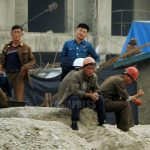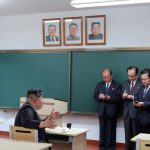
◆ Strengthening control over the women's union
According to a reporting partner living in the northern region of the country, North Korean authorities are strengthening control over the "women's union" (Socialist Women's Union of Korea), which mainly consists of housewives who are not formally employed. Those who engage in trading or fail to participate in mobilizations are now being strictly punished as having committed "non-socialist behavior." By intensifying the "organizational life" of the women's union, the government intends to tighten control over housewives, who previously had relatively more free time without having to go to work. (HONG Mari / KANG Ji-won)
◆ Central directive: "Crack down on trading activities"
In North Korea, it is mandatory to belong to a certain organization, starting with the "children's union," which children join in the second grade of elementary school. While workers are organized into the "General Federation of Trade Unions," housewives who become dependent on their husbands after marriage and do not have jobs belong to the "women's union."
Reporting Partner A, who lives in Ryanggang Province, reported recent changes in the organizational life of the women's union:
"From early July, crackdowns on 'non-socialist behavior' such as non-participation in organizational activities have become stricter. Teams of 3-5 people are formed in each area with officials assigned to report weekly on whether there are any 'non-socialist behaviors' or if anyone has expressed complaints or dissatisfaction."
"I've heard that a directive came down from the central authorities to officials stating, 'Illegal activities involving individual trading are occurring frequently within the women's union organization. Strengthen organizational discipline and intensify political and ideological work.'"
In fact, the frequency of people mobilized for gatherings has significantly increased.
"Originally, there was political study on Saturdays. Now, we've become busy with regular studies on Wednesdays, lectures on Fridays, and life review sessions and lectures on Saturdays. Attendance has become strict, with a system in place to investigate and report those who are absent."
※ Life review session: Refers to a self-criticism meeting that all people are supposed to participate in. It is held once a week in the organization to which one belongs.
◆ Is it an intention to strengthen state rule by stifling the private business?
Due to economic turmoil in the 1990s, North Korea's food rationing system collapsed, and black markets emerged across the country. While men were forced to go to work despite not receiving wages or rations, housewives engaged in economic activities to secure food and necessary goods to support their households.
When markets were legalized in 2003, women became even more active. Some succeeded in business and accumulated wealth. It was common practice to bribe officials and skip women's union activities to do business in the markets.
These women can be considered the "protagonists" who expanded North Korea's market economy. From the government's perspective, however, they are seen as the central force of "non-socialist behavior" that has gone beyond its control.
Previous investigations by ASIAPRESS have made it clear that the Kim Jong-un regime has tightened control over its people since around the time of the pandemic outbreak. This current movement can be seen as part of an effort to suppress the market economy and strengthen the state-controlled economy by regulating the economic activities of housewives that have been tolerated to some degree until now.
In fact, another Reporting Partner B living in Ryanggang Province reported in early January:
"Even if you belong to the women's union, there's no time to do business in the marketplace. They mobilize us, give us tasks, and demand organizational activities almost daily. While study sessions and temporary mobilizations usually last 3-4 hours, they can sometimes continue for up to 6 hours."
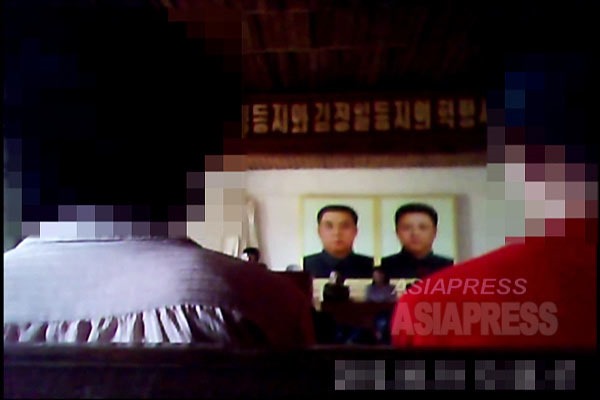
◆ Given insufficient income from jobs, people worry about livelihoods
How are women reacting to the government's increasing efforts to control them?
Reporting Partner A reported that "there's too much pressure from organizational life, with frequent mobilizations and demands to properly conduct life review sessions and self-criticism. In this situation, many people have decided to get jobs in enterprises, thinking it's better to be formally employed even if it means less income."
However, the reality is that even if they go to work, the rations people receive are not sufficient to survive.
Reporting Partner B said, "Recently, people are only worried about how to make a living. You have to stand in line to buy food at the state-run grain stores. We can't do business and can't earn money, so how are we supposed to eat with just what the country gives us? Everyone is worried."
※ State-run grain shops: State-run stores that sell food. For a long time, they were not functional, but resumed operations around 2019. As food trading in markets has been banned, dependence on grain sales offices, where food can be legally purchased, has increased.
※ ASIAPRESS communicates with its reporting partners through Chinese cell phones smuggled into North Korea
- <Investigation>Current living conditions of North Koreans (1) Poor infrastructure…conditions surrounding water, electricity, heating, and restrooms
- <Inside N. Korea>Army removes 'unification' phrase with paint, even removing 'sacred words' of Kim Il Sung and Kim Jung Il, confusing many poeple
- <Inside N. Korea>Recruitment for the world's longest military service(1) This year 8 years for men, 5 years for women
- <Inside N. Korea> Workers frustrated by worsening workplace rations…Some call out company officials in rare rebuke
- <Investigation>Why aren’t North Korea’s women having babies anymore? (1) The fertility rate is already severely low…It’s rare to see anyone carrying babies around

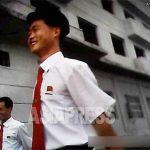
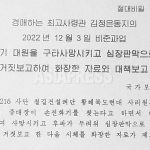
![[Video Report] N.Korea Soldiers selling seaweed at a market](https://www.asiapress.org/rimjin-gang/wp-content/uploads/2018/07/20130819-00010001-asiapk-000-1-view-150x150.jpg)
